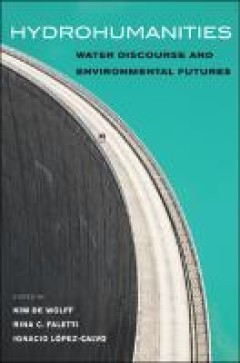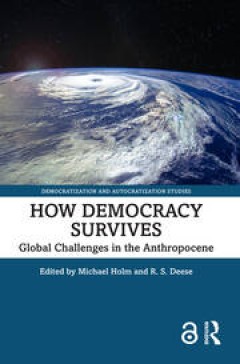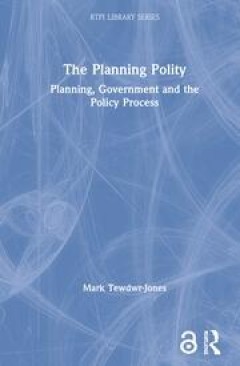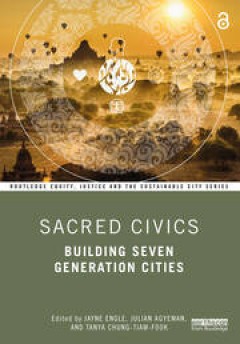Filter by

Food Price Policy in an Era of Market Instability: A Political Economy Analysis
Food price volatility is one of the major challenges facing the global agricultural system today. This was most vividly illustrated during the global food crisis of 2007–9 when price spikes occurred for key staple food commodities—such as wheat, rice, maize, and soybeans. Given the variety of reactions by governments of countries experiencing similar food price shocks, the 2007–9 crisis o…
- Edition
- Ed. 1
- ISBN/ISSN
- 9780198718574
- Collation
- 544
- Series Title
- WIDER Studies in Development Economics
- Call Number
- 338.9 FOO f

Hydrohumanities: Water Discourse and Environmental Futures
- Edition
- -
- ISBN/ISSN
- -
- Collation
- -
- Series Title
- -
- Call Number
- -
- Edition
- -
- ISBN/ISSN
- -
- Collation
- -
- Series Title
- -
- Call Number
- -

Unhealthy Housing
ABSTRACT Unhealthy Housing presents an analysis of the research into the health implications of housing and the significance for legal regulation of housing conditions. Key experts present short papers, together with an overview to give an evaluation of the significance of housing on the health of occupiers.
- Edition
- -
- ISBN/ISSN
- 9780203974254
- Collation
- -
- Series Title
- -
- Call Number
- -

Squatters in the Capitalist City
ABSTRACT To date, there has been no comprehensive analysis of the disperse research on the squatters’ movement in Europe. In Squatters in the Capitalist City, Miguel A. Martínez López presents a critical review of the current research on squatting and of the historical development of the movements in European cities according to their major social, political and spatial dimensions. C…
- Edition
- -
- ISBN/ISSN
- 9781315719023
- Collation
- -
- Series Title
- -
- Call Number
- -

North American Cornucopia
ABSTRACT Many North American plants have characteristics that are especially promising as candidates for expanding our food supply and generating new economically competitive crops. This book is an informative analysis of the top 100 indigenous food plants of North America, focusing on those species that have achieved commercial success or have substantial market potential. The book's user-fri…
- Edition
- -
- ISBN/ISSN
- 9780429162794
- Collation
- -
- Series Title
- -
- Call Number
- -

How Democracy Survives
ABSTRACT How Democracy Survives explores how liberal democracy can better adapt to the planetary challenges of our time by evolving beyond the Westphalian paradigm of the nation state. The authors bring perspectives from Africa, Asia, Europe, Latin America, and North America, their chapters engaging with the concept of transnational democracy by tracing its development in the past, assessin…
- Edition
- -
- ISBN/ISSN
- 9781003218586
- Collation
- -
- Series Title
- -
- Call Number
- -

Cities After Crisis
Cities After Crisis shows how urbanism and urban design is redefining cities after the global health, economic, and environmental crises of the past decades. The book details how these crises have led to a new urban vision—from avantgarde modern design to an artisan aesthetic that calls for simplicity and the everyday, from the sustainable development paradigm to a resilient vision that defen…
- Edition
- -
- ISBN/ISSN
- 9781003130857
- Collation
- -
- Series Title
- -
- Call Number
- 333.71

The Planning Polity
ABSTRACT Planning is not a technical and value free activity. Planning is an overt political system that creates both winners and losers. The Planning Polity is a book that considers the politics of development and decision-making, and political conflicts between agencies and institutions within British town and country planning. The focus of assessment is how British planning has been formula…
- Edition
- -
- ISBN/ISSN
- 9780203987032
- Collation
- -
- Series Title
- -
- Call Number
- -

Urban Blue Spaces
ABSTRACT This book presents an evidence-based approach to landscape planning and design for urban blue spaces that maximises the benefits to human health and well-being while minimising the risks. Based on applied research and evidence from primary and secondary data sources stemming from the EU-funded BlueHealth project, the book presents nature-based solutions to promote sustainable and resi…
- Edition
- -
- ISBN/ISSN
- 9780429056161
- Collation
- -
- Series Title
- -
- Call Number
- -

Sacred Civics
ABSTRACT Sacred Civics argues that societal transformation requires that spirituality and sacred values are essential to reimagining patterns of how we live, organize and govern ourselves, determine and distribute wealth, inhabit and design cities, and construct relationships with others and with nature. The book brings together transdisciplinary and global academics, professionals, and act…
- Edition
- -
- ISBN/ISSN
- 9781003199816
- Collation
- -
- Series Title
- -
- Call Number
- -
 Computer Science, Information & General Works
Computer Science, Information & General Works  Philosophy & Psychology
Philosophy & Psychology  Religion
Religion  Social Sciences
Social Sciences  Language
Language  Pure Science
Pure Science  Applied Sciences
Applied Sciences  Art & Recreation
Art & Recreation  Literature
Literature  History & Geography
History & Geography